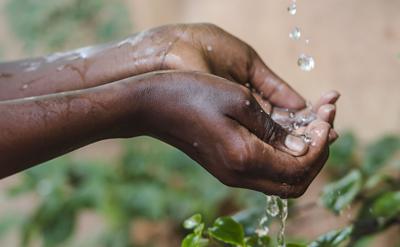Southampton researchers awarded millions to tackle food and water security

A project led by the University of Southampton has secured £5m over four years to help improve food and water security for people in sub-Saharan Africa. The money, from Research Councils UK (RCUK), is part of wider funding from one of the most ambitious international research programmes ever created.
Leading experts from the UK, and in developing countries across the world, are joining forces to tackle some of the most serious global challenges. £225m has been invested across 37 interdisciplinary projects to address challenges in fields such as; health, humanitarian crises, conflict, the environment, the economy, domestic violence, society, and technology. The Global Challenges Research Fund (GCRF) Research Councils UK Collective Fund is supporting these latest projects with awards of between £2m to £8m.
The Southampton project, ‘Building research capacity for sustainable water and food security in drylands of sub-Saharan Africa’ is led by Professor Justin Sheffield of Geography and Environment. It will connect scientists from Kenya, Ghana and Malawi with each other and UK researchers, to help set in motion water and food research projects aimed at benefitting the region.
Professor Sheffield said: “Subsistence farmers across Africa rely on rainwater for their crops, so it is vital not only for drinking and food production, but also as a crucial part of the economy. As a fragile and precious resource, we want to collaborate with institutes in the region to help ensure its future supply.”
Commenting on the funding award, Vice President (Research and Enterprise) at the University of Southampton, Professor Mark Spearing, said: “This project is exemplary in bringing very high quality research to bear on a problem of global importance, with a strong group of international partners. I wish the team every success in delivering it and achieving its goals.”
Dean of Social, Human and Mathematical Sciences at Southampton, Professor Jane Falkingham, added: “Today, over 600 million lack access to safe water; almost half of people drinking water from unprotected sources live in sub-Saharan Africa. This project has the potential to make a real difference to the lives of some of the poorest people on our planet, directly contributing to the University’s mission of changing the world for the better.”
Southampton project partner Dr Jean-Marie Kileshye Onema, of WaterNet/SADC, said: “As the Southern African Development Community (SADC) institution for capacity-building in water resources management, WaterNet is thrilled to be part of this GCRF collaborative research project, as this will further contribute toward improved people’s livelihood through enhanced food and water security in our dry land regions.”
The Global Challenges Research Fund aims to build upon research knowledge in the UK, and strengthen capacity overseas, to help address challenges, informed by expressed need in developing countries.
Jo Johnson, Minister for Universities and Science, said: “From healthcare to green energy, the successful projects receiving funding today highlight the strength of the UK’s research base and our leadership in helping developing countries tackle some of the greatest global issues of our time.
“At a time when the pace of scientific discovery and innovation is quickening, we are placing science and research at the heart of our Industrial Strategy to build on our strengths and maintain our status as science powerhouse.”
Related Staff Member
Notes for editors
Partners on the University of Southampton led project are:
University of Malawi
University of Nairobi
University of Ghana
Kenyatta University, Kenya
Technical University of Kenya
Masinde Muliro University of Science and Technology, Kenya
UNESCO International Hydrology Programme
International Institute for Environment and Development
AGRHYMET Regional Center, West-Africa
WaterNet/SADC
